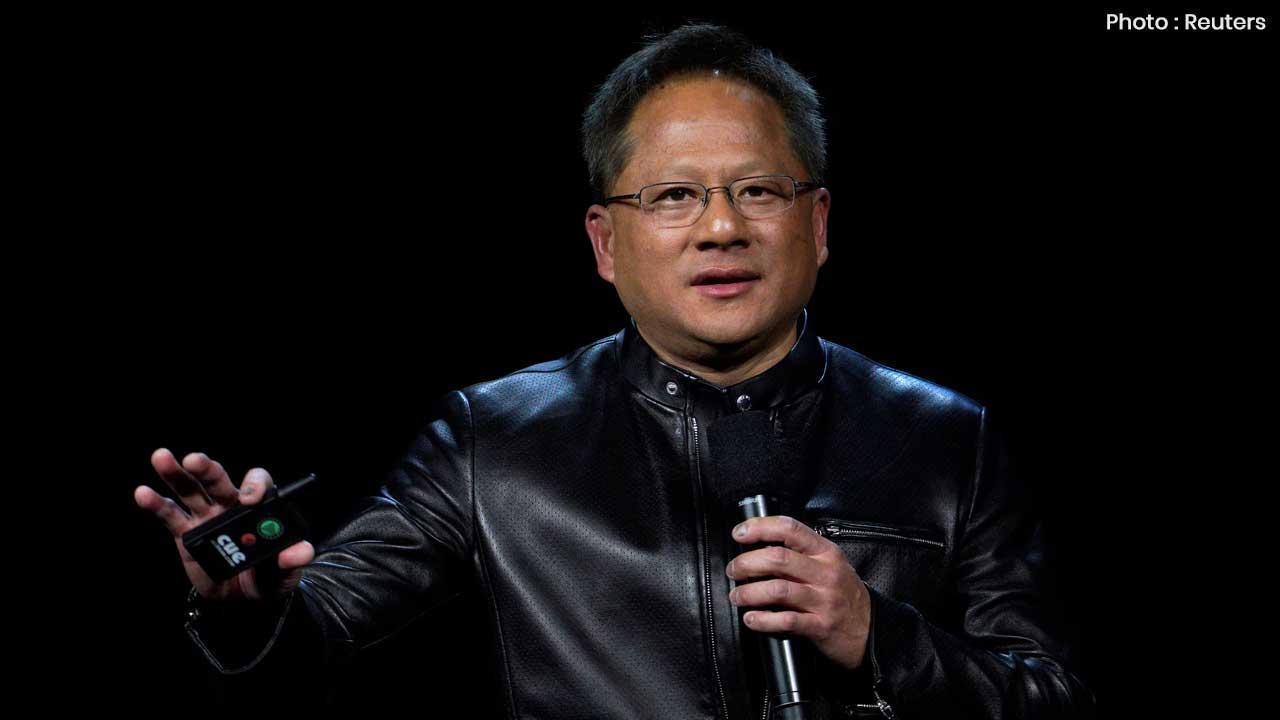
Join 10k+ people to get notified about new posts, news and tips.
Do not worry we don't spam!

Post by : Anis Farhan
The digital world has become an integral part of modern childhood. From educational apps and online classes to entertainment platforms and social media, technology surrounds children in ways previous generations never experienced. While screens open doors to knowledge and creativity, they also bring challenges—addiction, distraction, and emotional disconnection.
Conscious parenting, at its core, is about awareness. It requires parents to be present, emotionally attuned, and thoughtful about the kind of environment they’re creating for their children. In the digital age, this mindfulness extends to understanding how technology impacts a child’s growth, behavior, and sense of self.
Parents today face a unique dilemma: how to raise kids who are tech-savvy yet emotionally grounded. The goal isn’t to eliminate technology but to help children use it with purpose and balance.
The rise of smartphones, tablets, and constant connectivity has changed how children think, learn, and interact. Studies suggest that excessive screen time can affect attention spans, sleep quality, and emotional regulation. Yet, digital exposure also offers undeniable benefits—access to global information, creativity tools, and online learning platforms.
Children who grow up immersed in technology often develop strong problem-solving skills and adaptability. However, without guidance, they can also fall prey to digital dependence, cyberbullying, or unrealistic social comparison through social media.
The challenge for parents lies in creating a healthy relationship between children and technology. This means teaching them not just how to use gadgets, but when and why to use them.
Conscious parenting is not about control—it’s about connection. It emphasizes empathy, active listening, and emotional intelligence. In the context of digital exposure, it involves being aware of how children engage with screens and guiding them towards meaningful use.
A conscious parent understands that their own behavior sets the tone. If a child sees their parent scrolling endlessly through a phone during dinner, they internalize that behavior as normal. Therefore, modeling digital discipline is just as important as enforcing it.
The foundation of conscious parenting rests on three pillars: awareness, empathy, and communication. These principles help children develop self-control and mindfulness even when surrounded by technology.
Setting boundaries around screen time isn’t about punishment—it’s about teaching responsibility. Conscious parents can create structured yet flexible routines that balance screen use with other activities like outdoor play, reading, and family interactions.
Some effective practices include:
Creating tech-free zones: Meals, bedrooms, and family gatherings can be screen-free spaces to encourage real conversations.
Setting screen schedules: Establish daily or weekly limits for entertainment-related screen time.
Encouraging intentional use: Teach children to use technology for learning, creativity, or connecting with loved ones rather than passive scrolling.
Consistency is key. When rules are clear and applied equally, children learn to respect boundaries and appreciate the value of balance.
Children imitate what they observe. Parents who consciously manage their own tech habits send a powerful message about self-control and presence.
Simple steps such as keeping phones away during family meals, limiting work emails after hours, or using social media mindfully can create a ripple effect. When parents demonstrate that human connection matters more than notifications, children follow suit.
This modeling also reinforces emotional connection. A child who feels heard and seen by their parents develops stronger self-esteem and trust—traits that make them less dependent on digital validation.
Technology can either distance or deepen emotional intelligence, depending on how it’s used. Conscious parenting involves helping children understand their feelings even in digital spaces.
For example, when a child feels left out after seeing friends’ social media posts, parents can use that moment to discuss emotions like jealousy or disappointment. This helps children process feelings instead of suppressing them.
Encouraging empathy online—teaching kids to think before they comment or share—cultivates kindness in a world that often feels impersonal. Discussing the consequences of cyberbullying, misinformation, and online peer pressure can further strengthen their moral compass.
A balanced childhood includes space for boredom, imagination, and play. Conscious parents recognize that creativity often thrives away from screens.
Encourage children to explore hobbies—music, drawing, writing, gardening, or sports—that nurture their curiosity. Outdoor play fosters social skills, problem-solving, and resilience, while family activities like cooking or storytelling strengthen bonds.
By offering enriching offline experiences, parents can help children realize that fulfillment doesn’t always come from digital stimulation. This balance between online and offline engagement shapes a more holistic development.
In today’s world, digital literacy is as essential as reading or writing. Conscious parenting means teaching children not only how to operate devices but also how to think critically about the information they encounter.
Children should learn how to identify credible sources, understand privacy settings, and recognize online manipulation or misinformation. Teaching them the ethics of sharing, protecting personal data, and understanding digital footprints helps build a responsible digital citizen.
Parents can introduce conversations about consent in the digital space—asking before posting pictures of others, understanding how data is used, and being respectful online. These lessons empower children to navigate the digital world with awareness and integrity.
Trust is the cornerstone of conscious parenting. Open, honest communication allows children to share their digital experiences without fear of punishment.
Instead of surveillance-based monitoring, conscious parents prioritize dialogue. Asking questions like “What do you enjoy most online?” or “Have you come across something that made you uncomfortable?” fosters openness.
When children feel trusted, they are more likely to be transparent about their online lives. This trust-based approach transforms digital supervision from control into cooperation.
Technology should complement, not replace, emotional intimacy. Family rituals like shared meals, bedtime stories, and daily check-ins help maintain closeness. Parents who prioritize conversation and eye contact teach their children the irreplaceable value of real-world connection.
Mindfulness practices such as family meditation or gratitude sessions can further enhance emotional awareness. These habits remind children that happiness is not found in virtual likes but in authentic human interaction.
In essence, conscious parenting doesn’t reject technology—it integrates it wisely, ensuring that love, empathy, and connection remain at the heart of family life.
The digital landscape will only grow more complex. From AI companions to virtual classrooms, children will need strong internal guidance to navigate the future responsibly. Conscious parenting equips them with the emotional intelligence, critical thinking, and self-awareness needed to thrive in an evolving world.
Parents must evolve alongside technology—educating themselves, staying curious, and being willing to adapt. The goal is not to control every aspect of a child’s online life but to raise confident, empathetic individuals who can make wise digital choices.
By cultivating awareness and compassion, parents create an environment where technology enhances growth rather than hinders it.
Raising children in the digital age is both a challenge and an opportunity. It requires mindfulness, empathy, and patience. Conscious parenting bridges the gap between technology and heart, ensuring that while children grow up surrounded by screens, they never lose sight of what truly matters—human connection.
When parents choose awareness over automation, presence over distraction, and love over fear, they not only guide their children through the digital maze but also teach them the most valuable lesson of all: how to live meaningfully in a modern world.
This article is intended for general informational purposes only and should not be considered professional parenting or psychological advice. Readers are encouraged to seek guidance from certified family counselors or child development experts for tailored advice based on their personal situations.










Shreyas Iyer’s Recovery Underway After Spleen Laceration in Sydney ODI
Shreyas Iyer is recovering after a spleen laceration sustained while taking a catch in the Sydney OD

Qatar Ready to Host FIFA U-17 World Cup 2025 in Aspire
Qatar confirms full readiness to host the FIFA U-17 World Cup 2025 from November 3–27, with world-cl

Wolvaardt’s 169 Sends South Africa Into Women’s World Cup Final
Laura Wolvaardt’s 169 powered South Africa to a 125-run semi-final win over England, booking a place

Vacherot Beats Cousin Rinderknech to Reach Paris Masters Last 16
Valentin Vacherot overcame cousin Arthur Rinderknech in three sets to secure a place in the Paris Ma

Fernandez Reaches Hong Kong Tennis Open Quarterfinals
Leylah Fernandez moved into the Hong Kong Tennis Open quarterfinals with a straight-sets win, as maj

Tiger Woods Withdraws From 2024 Hero World Challenge After Back Surgery
Tiger Woods will not compete at the 2024 Hero World Challenge after lumbar disc replacement surgery,